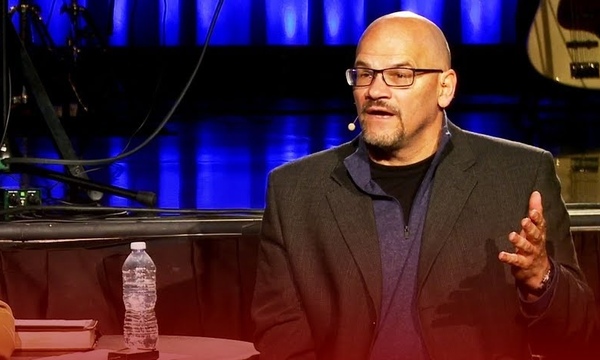Students and faculty began working on Biola University’s first organic garden Friday, September 25, 2009 outside Sigma Chi Residence Hall.
Jason Tresser, professor of Biology, came to Biola with hopes to create an organic garden. Now, a year later, that vision is becoming a reality. Last Friday, Tresser and about a dozen students gathered around the Sigma plateau — the dry patch of land near the Emerson parking lot — and stirred up the soil with fertile amendments, making the first step towards creating the garden. Students will plant beans, cabbage, and various herbs with results in the next few months, and grow different vegetables and herbs as the seasons change.
“This is a long-term project,” Tresser said. “New vegetables and herbs can be planted each season.”
For those studying environmental science — a major due out within the next couple years — the garden will be of particular interest, as it is in direct application with their studies. They can observe first hand the benefits of low-impact living, as well as experiment in ways to control pests and rodents without the use of toxic chemicals. The ultimate vision for the garden, as Tresser depicted it, is to create an organic, beautiful, and relaxing garden where students and faculty can marvel at God’s creation and partake in the produce grown. The garden will be ideal for peaceful meditation, or a few quiet hours tending to the land.
The garden will be organic in that there will be no use of any synthetic fertilizers, pesticides or other additives. Green clippings that would otherwise go to waste around campus will be used for compost. The compost pile will be constructed with hay bales instead of cement or wood, Tresser said.
“Any pests or rodents that we have here … we won’t treat with chemical pesticides,” Tresser said. “You have to be more creative and plant-focused. We want to create healthy plants that can resist the pests on their own.”
The garden will be used mainly for students’ education. Biology and ecology majors will have the opportunity to gain some hands-on experience with what they are learning in class, as well as study how farming can impact the land.
“We will focus on exploring the benefits of crop rotation, green manures, composting and biologically-based pest control methods,” Tresser said. “We will also explore issues of ecological sustainability, biological cooperation and the relationships between cultivated crops and native plants and animals. In this role the garden will be a learning tool for students who may go on pursue careers in botany, food science, ecology and environmental studies.”
The benefits of the project are multifold. In addition to its use as an educational tool, the garden also serves as a means to connect students together through their love for God’s creation. The project is not exclusive to science majors alone. Anyone who has a heart for the land, or wishes to do something for the environment, can take part. Tresser wanted to see students, staff and faculty from other backgrounds become involved in the project.
“I hope the garden will be a place that provides people with an outlet to explore and appreciate God's creation and learn about methods of sustainability and low-impact living that they could incorporate into their own lives,” he said.
Kyle Shanebeck, a senior biological science major and president of the Granola club, hoped the garden will raise awareness of God’s creation in other students.
“For the science [majors] we feel like we’re helping our university with this garden,” Shanebeck said. “Science majors sometimes feel like we’re not always given a chance to show our joy in what God has made, and a lot of students aren’t able to see what we love about Him. This is a good way to show how much we value God’s creation. It’s a way for students to express that love.”
Tresser plans to spend a few hours a week cultivating the garden alongside students and hopes that this project will continue for many years to come.
Read more articles at The Chimes online.
Written by Heather Tanji, reporter for Biola University’s student newspaper The Chimes.
 Biola University
Biola University


_(1).jpg)